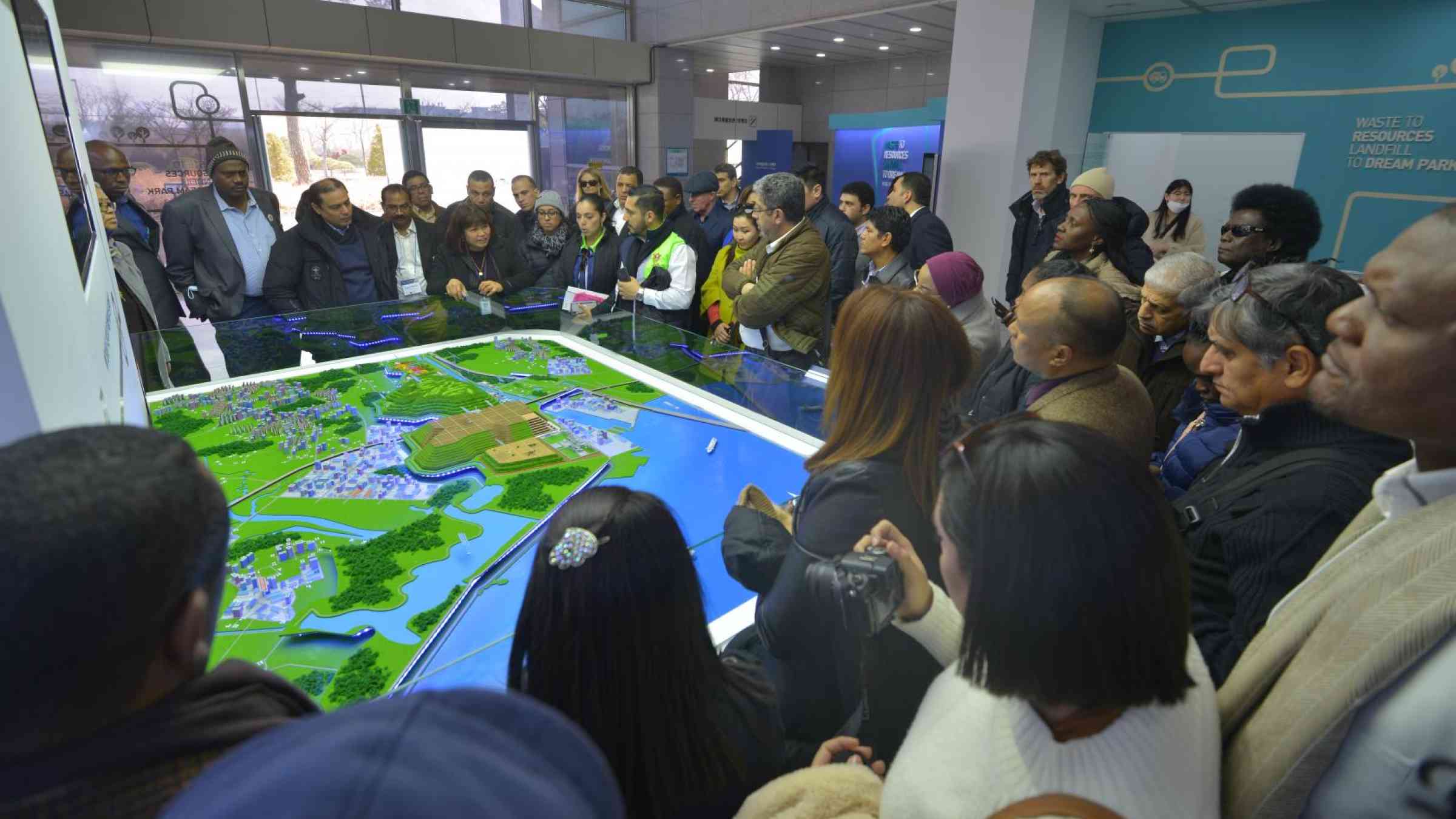As specifically and uniquely highlighted in Sendai paragraph (36c), the Private and Financial Sector, as well as its regulators, are indispensable for a resilient future.
Areas for action include the integration of disaster risk reduction considerations into business practices and consumer and supplier relations, taking a long-term perspective to insurance, financing and investment portfolios, development of business metrics, and comprehensive risk assessment and risk scenarios for resilience.
Building on its long-term engagement with the private and financial sector, UNDRR focuses on the following four key priorities for 2020 – 2021:
- Enhance resilience of small and medium size enterprises (SMEs)
- Integrating disaster and climate risks into financial sector investment decisions
- Incentivizing disaster risk reduction and enhanced data for risk-informed decision making through engagement with the broader insurance sector
- Supporting resilient infrastructure development
Areas and initiatives
The implementation of these four priorities is supported through UNDRR engagement with the business community in various areas and initiatives:

Insurance Development Forum
UNDRR is also a member of the Insurance Development Forum (IDF), which brings together private and the public partners led by the insurance industry and supported by international organisations. IDF aims to optimise and extend the use of insurance and its related risk management capabilities to build greater resilience and protection for people, communities, businesses, and public institutions. UNDRR has been a founding member of the IDF, which was launched at the 2015 Paris Climate Summit.
The SRSG is a member of the IDF Steering Committee, with further collaboration between UNDRR and IDF extending to the Operating Committee and IDF working groups. Specifically, UNDRR co-chairs the IDF Risk Modelling Steering Group together with RenaissanceRe. The RMSG is dedicated to improving global understanding and quantification of natural hazards disaster risk, through use, development and sharing of the re/insurance sector’s catastrophe risk modelling capability. Risk-literate users in vulnerable countries should be able to access all relevant models and datasets, use them on their preferred platform, develop them further and trust the results.
The amount of duplicated effort and inefficiency in the risk modelling system should also be reduced. Among other, the RMSG is working with UNDRR to undertake a risk model ‘mapping and gap analysis’ and an effort to thoroughly understand the requirements of sovereign and sub-sovereign users in term of risk assessment outputs. The outputs of these activities will contribute to the UNDRR Global Risk Assessment Framework (GRAF). More information is available in the RMSG 2018 Strategy document.
UNDRR-ICMIF Partnership
Building on the long-standing cooperation between the UN Office for Disaster Risk Reduction (UNDRR) and the International Cooperative and Mutual Insurance Federation (ICMIF), the two organizations entered a dedicated partnership to build the business case and related tools for a Sendai-compliant cooperative and mutual insurance sector.
Cooperation in 2020-2021 will build on the following key points:
The effective implementation of the Sendai Framework hinges on the integration of disaster risk reduction into all public and private policy and investment decisions. Coherence, i.e. an integrated approach to disaster risk reduction, sustainable development and climate change, at the global, regional, national and local levels is critical to the achievement of this objective and is therefore a shared priority for both UNDRR and ICMIF.
Natural changes and human activities are creating a new landscape of increasing hazards and consequential risks, cascading and interlinked disasters and increasing systemic risks which go beyond what has been traditionally in focus of the disaster risk reduction community. This rapidly evolving risk landscape requires a transformation of how we live and invest, both from a public and private sector perspective. This requires closer interaction and collaboration between different actors engaged in disaster risk reduction, including between the public and private sector, law makers and regulators for more risk-informed business investment. Within all these efforts, communities must be firmly placed at the heart of any action and decision-making. Building on above, ICMIF and UNDRR have identified the development of the business case for resilience for insurance, specifically why and how to build a Sendai-compliant insurance sector, as a critical need to further the discussions and action for impact.
Activities
The collaboration will focus on a small set of concrete activities and deliverables, namely:
Building the business case for DRR and resilience, including development of a taxonomy for Sendai-compliant mutual insurance. This work will include focus on the role and opportunities for women’s engagement in building resilience Sampling the Market through a small number of national and local pilots Setting targets and goals for the mutual insurance to become fully Sendai-compliant; this can include a checklist with key questions and guidance materials/guidelines targeted at the mutual insurance industry; policy recommendations including on regulatory issues, etc
Expected deliverables are:
- Development of the business case and taxonomy for Sendai compliant mutual insurance
- Implementation of up to five member pilots
- Interim reports on progress and experiences at the Global Platform for Disaster Risk Reduction and 2022 ICMIF Conference; final report
- Implementation modalities
ICMIF and UNDRR will set up a new Working Group to take this work forward over the coming three years. The Working Group will consist of ICMIF members and UNDRR staff and representatives and should reflect a regional and developing/developed nation balance. The Working Group will be supported by a dedicated project staff provided by ICMIF, who will work in close consultation with/reports to Head of the UNDRR Partnerships Unit. The Working Group will mainly work remotely, with in-person meetings organized based on needs and availability of resources.
Work will be overseen by a High-level Steering Group consisting of the Special Representative of the Secretary-General for Disaster Risk Reduction, the Chair of the ICMIF Board and CEOs of the ICMIF Members engaged in the Working Group. The Working Group will provide regular updates on progress to the High-level Steering Group.
080b.jpg?h=3dd109c2&itok=Tw9U7c4u)